This was originally published in the Bais Rivka Embrace Magazine
@EverGrowingEducator

Don’t call me smart:

🌟 Instead of telling a child: “You’re so smart!” —> Try “I can see how hard you’ve been trying” or “You’re really putting in effort, and it shows.”
🌱 This focuses on their effort and growth – things that they’ve earned – and not just their inborn intelligence. You can also encourage their interests and passions by saying things like “I love how curious you are, it’s great to ask questions.”
📚 By focusing on what the child can control, you’re helping them build a love for learning and a growth mindset.

Instead of “Great job!”
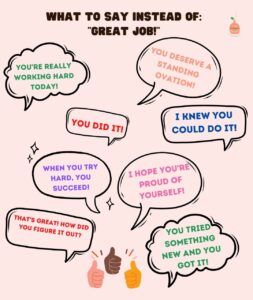
🌟 There are so many benefits to giving children (and adults) specific praise.
💡 Instead of telling a child, “Great job,” use the opportunity to praise their specific efforts and encourage a growth mindset.

Don’t take attendance:
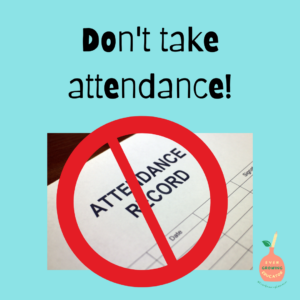
📌 Don’t take attendance
✋ Yes, you read that right.
❌ Don’t call name by name as you wait for a “here” or “yes.”
✨ Instead, do this:
💬 Ask each student a question as you say their name. Turn “roll call” into “connection time.”
📝 Here are 5 questions to last you through this week:

How to give feedback
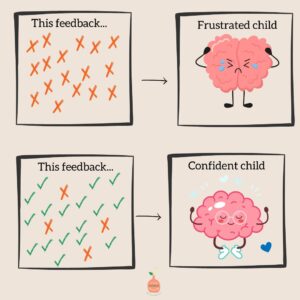
🌟 Did you hear of the 80/20 rule? This is similar.
📊 For every negative piece of feedback (or NO) that we need to give a child, we need to ensure we’re having 5 times as much positive interactions (or YESes).
🖐️ “Five to one – gets the job done!”
📚 Research showed that couples with 5 times as much positive interactions as negative had healthier relationships.
🏫 Of course, this goes for classes and homes, too. Kids with 5:1 ratios learned better, engaged more, and were able to accept the criticism in a healthier way.
📈 Plus, class participation increased which has another whole set of benefits.

Einstein’s report card

😲 Yes, this genius had trouble with school.
🧪 One of the greatest scientists ever, Einstein reportedly had difficulties in school, specifically with memorizing and typical teaching methods.
His report card may have said:
* “Albert often appears disengaged during class and lacks focus.”
“Albert interrupts the lesson with many random and untypical thoughts.”
“Albert struggles to follow instructions and complete tasks within given timeframes.”
👨🔬Yet his untypical thinking led to groundbreaking discoveries in physics.
✍️ If we were rewriting his report card today, knowing what we know, it would probably sound very different and positive. Maybe it would say this:
🧠 “Einstein shows a strong curiosity and deep interest in exploring scientific concepts. He would benefit from an environment that encourages exploration and nurtures his unique way of thinking. I am so proud to know him and can’t wait to see everything he will accomplish and discover.”
❤️ Can we keep this in mind year round when a child isn’t acting “typical?”

The Magic Word
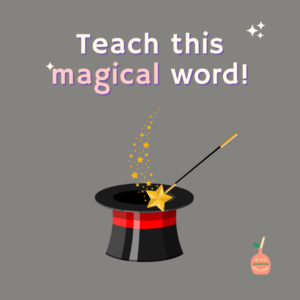
🪄 Add this word for a magical touch! YET.
🧐 I don’t understand how to translate this… YET.
➗ I can’t solve this math problem at all… YET.
📖 I don’t know how to read such a long word… YET.
📝 I’m not good at writing script… YET.
🤔 This doesn’t make sense… YET.
🌱 Adding Y.E.T. turns a statement from a “fixed mindset” of “I can’t” to a growth mindset of “I just need more time.”
🌟 And let’s be honest. This isn’t just for kids. We can all add some more YET’s to our lives, too 😉

Things to tell a child (that don’t cost a cent!)
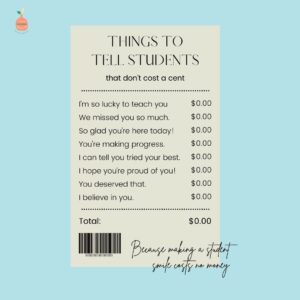
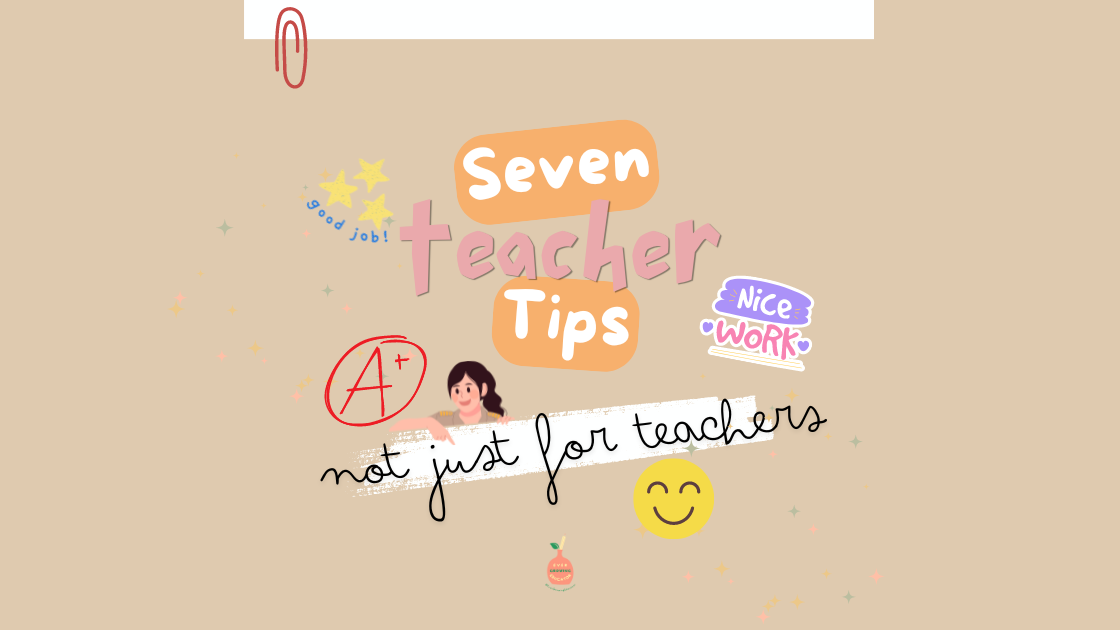
View comments
+ Leave a comment